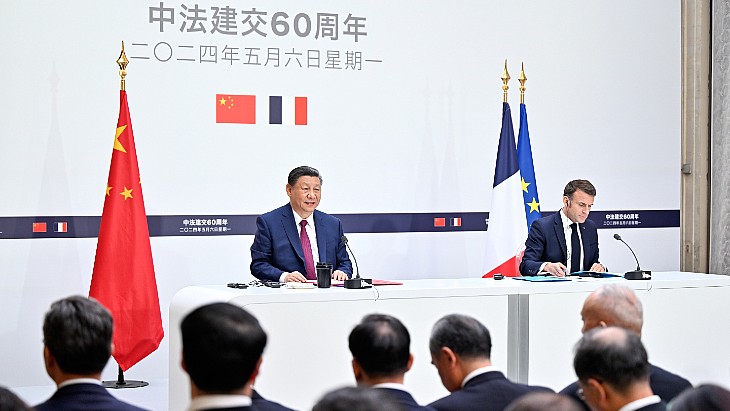Russia and India ready to trade
![]() Trade in nuclear power products and services has begun between India and Russia after the completion of a cooperation agreement. The first deal was to supply uranium fuel to the struggling Tarapur power plant.
Trade in nuclear power products and services has begun between India and Russia after the completion of a cooperation agreement. The first deal was to supply uranium fuel to the struggling Tarapur power plant.
Trade in nuclear power products and services has begun between India and Russia after the completion of a cooperation agreement. The first deal was to supply uranium fuel to the struggling Tarapur power plant.
The deal on civil nuclear cooperation was signed today during Russian President Dmitry Medvedev's visit to India. It comes as part of the acceptance of India's nuclear power sector into the global mainstream. To achieve this, India had to clearly separate its military and civil nuclear facilities and begin to bring in appropriate safeguards to prevent nuclear materials moving between the sectors.
.jpg) |
| President Dmitry Medvedev and prime minister Manmohan Singh chat over drinks in New Delhi yesterday (Image: The Kremlin) |
The agreement was among a package of documents signed off in New Delhi this morning, including energy in general as well as space exploration and military-technical cooperation.
Commercial contracts can now be prepared by Russian and Indian firms, the first coming in the form of a uranium dioxide supply agreement between Russia's TVEL and the Nuclear Power Corporation of India Ltd. Worth some $700 million, the contract lasts for several years and will ensure fuel supply to the Tarapur plant in Maharastra. The plant's two small boiling water reactors have had to operate at only 50% power for many months due to India's previous inability to source uranium in world markets. The change of this situation will give a quick 150 MWe boost to Indian power supplies.
Another high priority for India is to import a range of large-scale foreign power reactors. Russian firms are already building two large reactors at Kudankulam in Tamil Nadu under a specific cooperation agreement that covers just those two. Another two Russian reactors are expected to be agreed for Kudankulam very soon. Negotiations for these were completed early this year.
India would also like to gain involvement in Russia's nuclear power program, which includes proposals for around 25 new reactors by 2020, some of them using marine and fast-breeder technology.
Russia is the third country to make a nuclear cooperation deal with India, after France and the USA. Canada and the UK are known to be readying to conclude agreements.









_50521.jpg)


